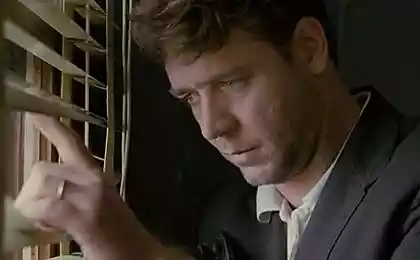614
8 books, who for various reasons were banned, but you can read them
Often works, frankly describing a particular problem, are excessive censorship. Sometimes they zastrugivajut someone's religious or moral principles, make people shock and even provoke riots. Most of these books are banned in some countries. We offer to your attention eight of these books.

1. "Slaughterhouse-five, or the children's crusade".The author Kurt Vonnegut As a young man, Kurt Vonnegut, after the bombing Japanese troops port pearl Harbor volunteered for the armed forces of the United States. Soon after his regiment was transferred to Europe to participate in World war II, and it so happened that in the course of hostilities, Vonnegut was captured. Was 1944 and the war was almost over. However, Vonnegut spent almost a year in Dresden, where he worked at the plant for the production of vitamin syrup for pregnant women. During the famous bombardment, he was in Dresden.
Vonnegut survived miraculously. After the tragedy he had to pull thousands of corpses from under the rubble of buildings. All these events that happened in his life, made an indelible impression on him, and after Vonnegut vowed never to take up arms.
Already becoming a recognized writer, Vonnegut decided to write about these things — he met with his former war buddy Bernard O'hare. Bernard's wife was furious after learning that Vonnegut is going to write about the war. She stated that these books have no right to exist because young men are inspired by them and then go to war, not realizing what they're doing and die. Vonnegut promised to name the book "the children's Crusade" and noted that he personally does not see in the war anything romantic.
"Slaughterhouse-five" — the book, not really romanticized the war. Vonnegut very clearly sets out his view that the bombing of Dresden by the air forces of the USA was not necessary — in the city there were no strategically important objects, and its population consisted of civilians and prisoners of war.
The war in the novel appears as a manifestation of senseless violence, and Vonnegut ridicules the established stereotypes in the culture of "heroes" and "tough guys". It is curious that the bombing in the novel almost never described — the author sees what happened nonsense that has no meaning emptiness, which is even clearly impossible to describe.
Many people advocated a ban of the book, accusing the book itself and its author's vulgarity, cruelty, abuse profanity, immorality, and unpatriotic. In some countries the book was eventually banned — anti-militarist sentiments are not too favorable to the government.
2. "The satanic verses" Author Salman Rushdie's Book belongs to the genre of magical realism, the main character, an Indian who immigrated in modern Britain. By the way, Rushdie himself an immigrant from India, now living in the United Kingdom.
The characters see the angels, move in time and space. At first glance, all very innocent and nothing wrong with the text does not contain. However, just a week after its first publication, some governments began to demand to withdraw the book from sale and banned. And in many countries the book is banned and its spread or even reading is punishable by law.
So, in Venezuela the reading of the Satanic verses threatened with imprisonment for the term up to 15 months in Japan — a serious penalty, but in Pakistan and India held mass demonstrations against Rushdie, resulting in a death among the civilian population. Moreover, in Iran the head of the writer of the bounty, now component of $3.3 million
What's in the book? It is closely intertwined with religion, in particular, it is not with the most favorable side of Islam is shown. In addition, Rushdie touched on the themes of the complexity of assimilation in a foreign country and the gradual loss of their roots. It seems to be okay, however, Rushdie is a master of words, and this skill has affected the feelings of millions of people.
3. "The catcher in the rye" Author Salinger, Jerom In the novel describes the United States since the last half-century. The protagonist — 16-year-old boy, rebellious, going against public morals, violating the canons and not giving much importance to the reality. The first novel was published in 1951-m to year, but the notoriety acquired later — in the period from 1957 to 1982 year.
In 1957, Australian customs seized a consignment of books donated by the Ambassador of the United States government. Later the book was returned, but noted that teenagers that can't be read. Then the book has undergone a controversy at home by J. D. Salinger in the United States — one teacher was even fired without the right to work in the field of education for the inclusion of the novel in the school curriculum. It is, of course, and then reinstated in their rights, but from the school curriculum, the novel was withdrawn.
Inappropriate reading for adolescents the novel was declared due to the deliberately coarse language and multiple explicit descriptions of sex. The novel repeatedly accused of incitement of youth to debauchery and drunkenness. However, such a ban only inflamed the interest of potential readers.
By the way, it is believed that the novel influenced the murderers, and without suffering from schizophrenia, they have found copies of the book with notes in the margins.
4. "Lolita" By Vladimir Nabokov Is believed that up to Nabokov's concept of pedophilia did not exist. The fact that the main character of the book, Humbert is showing sexual interest in girls aged 9 to 14 years of age, having a certain appearance. However, the hero just watches them. In order to satisfy his passion, he first marries an adult woman looks like a teenage girl, and after the divorce she met with some Charlotte — the mother of a 12-year-old Lolita. After Charlotte's death at Humbert and Lolita was a sexual relationship, and Humbert discovered that was not the first man girls.
This novel is not so much about pedophilia as such, but about the depravity of modern society, affecting both adults and minors. However, the novel almost immediately after the publication was accused of "dirty and outright pornography". In 1955, the year it was banned in France in 1959, the year in Argentina, in 1960 — in New Zealand. To Nabokov the publishers have requested assistance in the fight against prohibition, to which he replied: "My moral defense of the book is the book itself".
5. "Tropic of cancer" Author Henry Miller's "tropic of cancer" — a novel-autobiography: the author describes his own life in France in the 1930-ies. He was then poor and trying to get some money at least for food. Miller, the plain text tells of places where worked, without any changes gives the names of colleagues and acquaintances, and openly describes his sexual adventures.
Frank language and disregard for the censorship provoked a mixed public reaction. Some thought the novel brilliant, others talked about his obscenity. For example, a judge of the Supreme court of Pennsylvania Michael Musmanno spoke about the book as a cesspool and slimy meeting of all that is rotten in the remains of human depravity.
For the modern man book will not be so shocking, but in 1930-e years the manners were different, and society was unprepared for such frankness. So the novel was banned in several countries — particularly in Turkey, he banned until now.
6. "Brave new world" Author Aldous Huxley the novel "brave new world" — one of the first works that can be attributed to the genre of dystopia. The novel describes a consumer society where people live in the state, uniting the entire planet under the leadership of a unity government. Consumption in this society has become a cult, and "God" — Henry Ford. People there are grown in chelovekopotok and at the stage of embryonic development is divided into castes depending on the level of intelligence.
The book was published in 1932-m to year and have affected the problems that were on the minds of the people of that time: widespread industrialization, the loss of individuality and humanity and the division of society into classes depending on the financial wealth and mental abilities. The fact that all of these issues in the novel are presented intentionally exaggerated, and, in addition, the text contains a number of allusions — for example, slightly distorted names of real politicians.
The novel was banned in some US States, Ireland and other European countries — in the opinion of the censors, the book has created too much negative emotional background. In addition, people are unable to perceive the intentionally satirical style of presentation. Later prohibitions were removed, and the Huxley 30 years later wrote an article which noted with regret that the society is moving towards a "brave new world" even faster than he thought.
7. "Naked lunch" Author William Burroughs In "Naked Breakfast" affected almost all topics that are considered reprehensible in society: pedophilia, violence, pornography, homosexuality, crime, drugs. In the USA it was banned primarily due to the presence of explicit scenes of pedophilia and infanticide.
Rare instances, leaked to the press, were seized throughout the country up until 1963, the year (the book was published in 1959, the year). Publishers who dared to publish a book, had filed lawsuits, as the book gives the impression of propaganda — too reliably described the experiences of a hero, a drug addict.
The prosecution itself may undergo burrows, but in 1966, the year his lawyer in the course of the trial gave a detailed analysis of each Chapter of the work and was able to prove that the book is not obscene. However, in some States it was banned for publication for several years.
8. "451 degrees Fahrenheit" by ray Bradbury In the novel describes a consumer society where the printed book is prohibited by law to storage and distribution. If the books find any citizen, they burn special fire units along with the house of the perpetrator. Bradbury in his novel speaks of the spiritual impoverishment of society and the substitution of moral and spiritual values to the material and describes a world where the greatest good is consumption.
The censorship of the novel was subjected to another during the editing phase: in particular, few people know that the original was removed various expletives, mentions of abortion and other aspects. Bradbury even had to completely rewrite two chapters and then the book was approved for distribution in libraries.
However, bookstores were sold and the full "adult" version of the works. Then for some time this version of the issue ceased, and again it appeared in print only in 1980-m to year.
источник:publy.ru
Source: /users/78























